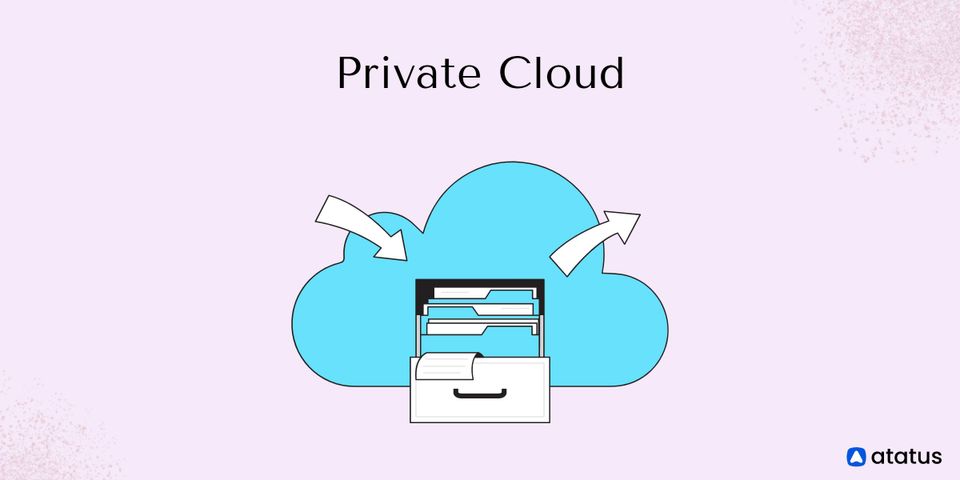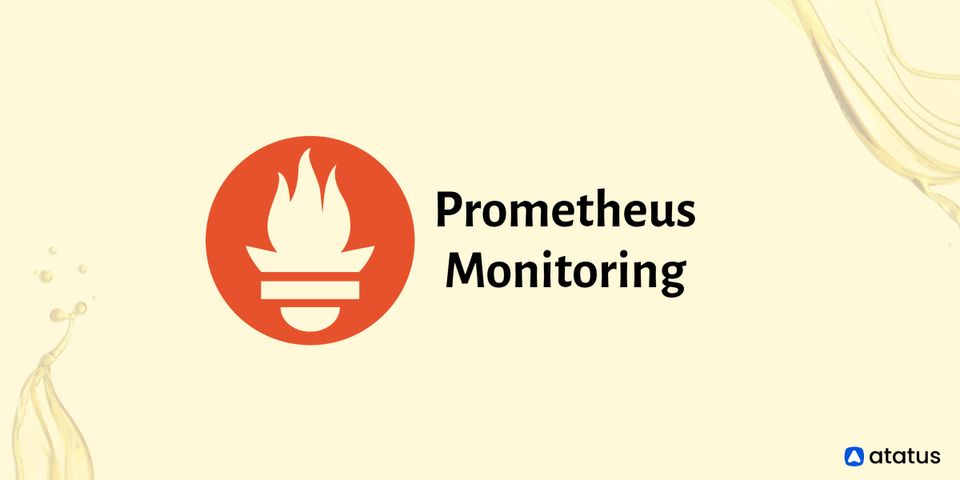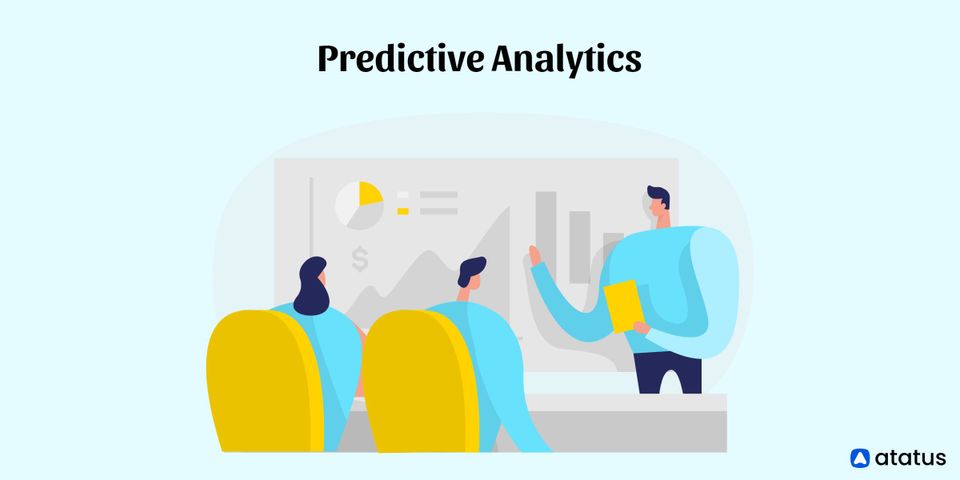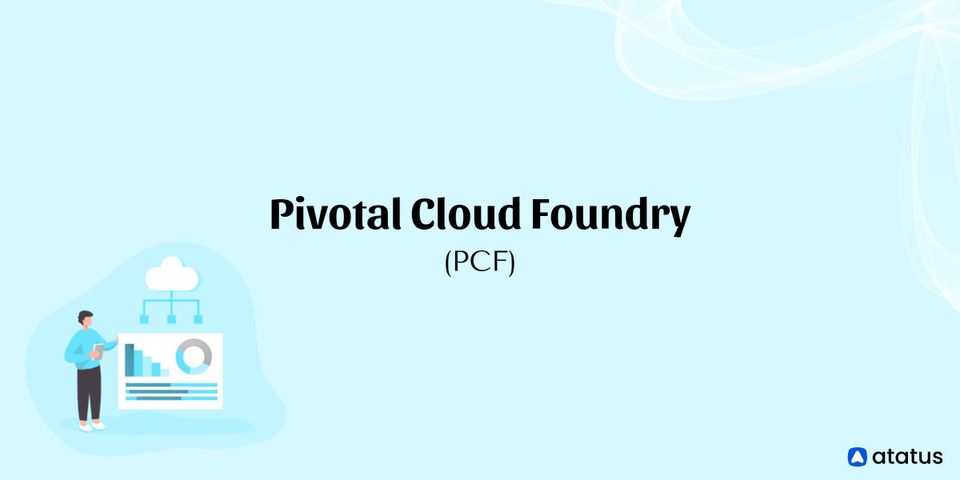A private cloud is a form of cloud computing that offers many of the same benefits as a public cloud, such as scalability and self-service, but through a private architecture. A private cloud is dedicated to a single organization's needs and goals, whereas public clouds provide services to various businesses.
We will go over the following:
- What is a Private Cloud?
- How does Private Cloud Work?
- Types of Private Cloud
- Private Cloud Benefits
- Challenges in Private Cloud
What is a Private Cloud?
A private cloud (also known as an internal cloud or corporate cloud) is a cloud computing environment in which all hardware and software resources are devoted to a single customer and only that customer has access to them. Many of the advantages of cloud computing, such as elasticity, scalability, and ease of service delivery, are combined with the access control, security, and resource customization of on-premises infrastructure in a private cloud.
Since the private cloud is easier to meet regulatory compliance standards than the public cloud, many businesses prefer it to the public cloud. Others prefer the private cloud because their workloads contain confidential documents, personally identifiable information (PII), intellectual property, financial data, medical records, or other sensitive data.
One of the most significant advantages of a private cloud deployment is the increased level of control available to the company. Since the private cloud is exclusively accessible by a single company, it may create and manage the environment in a way that is specifically adapted to the company's computing needs.
A private cloud strategy can be made up of hardware that is either housed locally at a company's facility or hosted by a cloud service provider. Virtual private clouds are usually billed on a monthly basis but provided hardware and storage configurations keep the benefits of a secure, private network.

How does Private Cloud Work?
A single-tenant environment is a private cloud, which means that the tenant does not share resources with other users. Those resources can be managed and hosted in a number of ways. The private cloud could be built on existing resources and infrastructure in an organization's on-premises data center or on a new, separate infrastructure offered by a third-party provider.
In some cases, virtualization software is used to create a single-tenant environment. A single user or tenant gets access to the private cloud and its resources in any case.
The private cloud is one of three general cloud deployment patterns used by businesses: public, private, and hybrid. The core parts of cloud infrastructure are shared by all three types.
All clouds, for example, require an operating system to function. The various types of software placed on top of the operating system, including virtualization and container software, decide how the cloud will function and distinguish the three primary models.
Private cloud software gathers computing, network, and storage resources available on individual servers but scattered across the data center into pools, then divides them into virtual resources that are then deployed to virtual machines using virtualization technology. Organizations can also supply containerized workloads on-demand by putting a containerization layer on top.
The private cloud makes all resources available to a single company or service only. They aren't shared with other renters, which means more resources are available. Furthermore, during periods of high demand, private clouds can dynamically scale out to provide the required resources.
The private cloud software can be implemented on existing data center servers or a whole new infrastructure created specifically for the private cloud implementation project.
Types of Private Cloud
Private clouds can be hosted and managed in a variety of ways, and they can perform a variety of services depending on the needs of the company:
- Virtual
A virtual private cloud is a walled-off environment within a public cloud that allows a company to operate its workloads in isolation from other users. The virtual logic ensures that a user's computer resources are private, even if the server is shared by other businesses. A virtual private cloud (VPC) can be used to facilitate hybrid cloud deployment. - Hosted
The servers in a hosted private cloud environment are not shared with other businesses. Although the service provider configures the network, maintains the hardware, and upgrades the software, the server is only used by one company. - Managed
This is a hosted environment in which the provider maintains every part of the cloud for the enterprise, including the deployment of additional services like identity management and storage. This is a good alternative for companies that don't have the resources to run private cloud systems on their own.
The above list divides different types of private clouds into categories based on how they are hosted and how much management they receive from the provider. The term "private cloud infrastructure" is frequently used to classify different types of cloud infrastructure. Consider the following scenario:
- Software-only
It merely supplies the software required to run the private cloud environment, which is hosted on an organization's existing hardware. In highly virtualized environments, a software-only solution is frequently used. - Software and Hardware
Some suppliers offer private clouds as a complete hardware and software package. It is usually a simple platform that is installed on the user's premises and may or may not be managed by the supplier.
Private Cloud Benefits
When executing workloads over time and at scale, the major benefit of a private cloud over public clouds is superior economics. The capabilities of a well-designed private cloud are comparable to those of major public cloud providers, while other aspects of the cloud are improved.

These are some of them:
- Long-term Cost Savings
While establishing a private cloud infrastructure takes a large initial expenditure, it pays off after a few years. Even with a slew of lightweight virtual machines. - Predictable Pricing
Public cloud cost is completely unexpected due to a variety of additional fees. Private cloud pricing, on the other hand, is typically totally transparent, allowing for predictable budgeting. - Improved efficiency
Private clouds often provide greater performance than public cloud infrastructure since they run on an organization's premises and there is no resource sharing. - Architectural Freedom
The organization chooses which hardware and software to utilize while constructing a private cloud, resulting in improved flexibility and architectural freedom. - Compliance and Security
While public clouds are generally thought to be more secure than private clouds, having complete control over the underlying infrastructure can help organizations meet compliance regulations in some situations. - Customization
An on-site cloud architect builds a private cloud, allowing stakeholders to specify the exact environment required to execute proprietary applications. The benefits of hosted private clouds are similar to those of on-premise private clouds, but they don't require any on-site setup. In that situation, the company collaborates with a partner to set up and manage a cloud that is just for its use. - Hybrid Integration
Hybridization extends the resources of a private cloud into a public cloud to guarantee uptime without the need to install extra physical servers when an application requires more computing capabilities. This can be a cost-effective alternative for businesses that require the security of a private cloud but also require the capacity of a public cloud service for other activities.
Challenges in Private Cloud
While private clouds offer a number of benefits to businesses, implementing a private cloud infrastructure comes with its own set of obstacles. These are some of them:
- High Capital Expenditures
Private clouds are not as appealing as public clouds on day one due to high hardware and software costs. Their financial advantages will be realized later. To deal with this, businesses should always design their private clouds to be cost-effective. Begin small and grow as your needs change. - On-demand Scalability
When a private cloud's resources run out, it can dynamically scale-out as long as additional resources in the data center are available. Due to the lengthy procurement process, it may take some time if certain resources are not available. - Capacity Management
Organizations are responsible for capacity management in a private cloud environment to assure the desired resource consumption. This adds to the workload for the internal cloud operations staff. Continuous private cloud monitoring and proactive capacity management are ensured with the use of a proper observability stack.
Conclusion
A private cloud is potentially safer than a public cloud. To gain the private cloud benefits, organizations must proactively ensure that security is strong and up to date. The private cloud can provide several security benefits as long as a business is not complacent about security. Since private clouds are limited to certain physical equipment, physical security can be easier to maintain.
Rather than using the public internet, most private clouds are protected by a perimeter firewall and accessed via private, secure network links. Furthermore, a company's level of control over its private cloud can make regulatory compliance and governance demands easier to meet.
Also Read:
Monitor Your Entire Application with Atatus
Atatus is a Full Stack Observability Platform that lets you review problems as if they happened in your application. Instead of guessing why errors happen or asking users for screenshots and log dumps, Atatus lets you replay the session to quickly understand what went wrong.
We offer Application Performance Monitoring, Real User Monitoring, Server Monitoring, Logs Monitoring, Synthetic Monitoring, Uptime Monitoring, and API Analytics. It works perfectly with any application, regardless of framework, and has plugins.
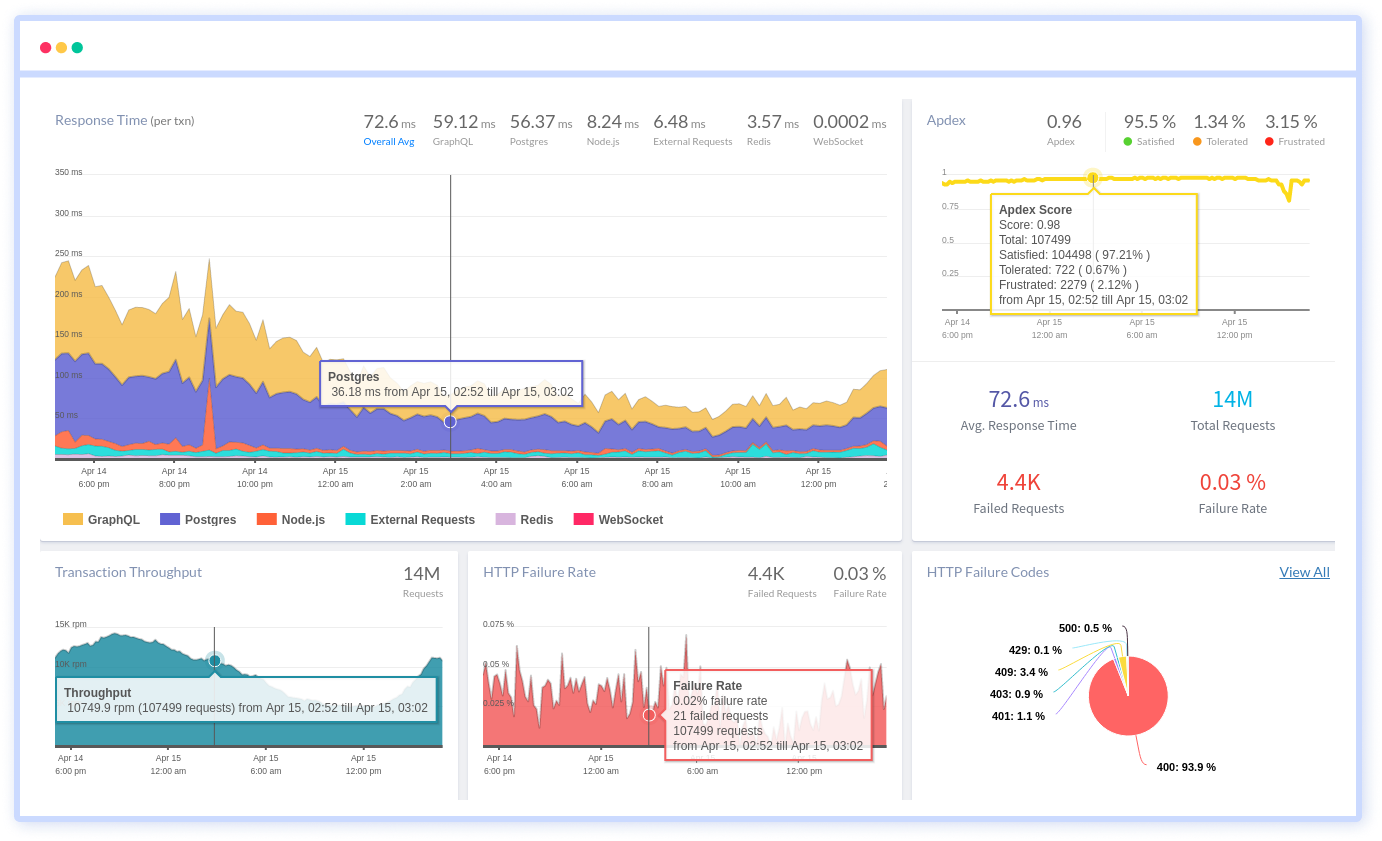
Atatus can be beneficial to your business, which provides a comprehensive view of your application, including how it works, where performance bottlenecks exist, which users are most impacted, and which errors break your code for your frontend, backend, and infrastructure.
If you are not yet an Atatus customer, you can sign up for a 14-day free trial.

